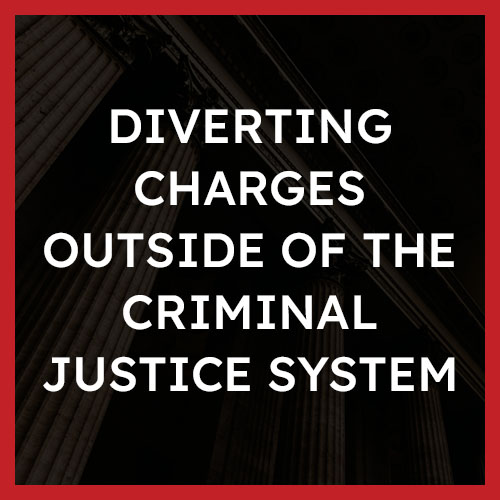What happens when I am charged with a crime?
In Canada, you are formally charged with a crime after an information is sworn before the court. An information is a document that specifies the charges against you, as well as details when and where the alleged offence occurred. Anyone can swear an information (though typically this is done by a police officer), but to do so they must go before a justice of the peace or a judge and, under oath, present reasonable grounds for the justice or judge to believe that it is appropriate to charge you with the alleged crime.
Once an information has been laid and you have been formally charged with a criminal offence, your ability to travel, communicate with certain people, or partake in certain activities may be restricted until the conditions imposed on you are changed or the charges are dealt with. If an information has been laid accusing you of an offence, but you have not yet been arrested by the police, a warrant may be issued for your arrest.
In Canada when you are charged with a criminal offence, you are presumed to be innocent until you are tried and found guilty in a court of law. Unfortunately, limitations may still be put on your freedom until the matter is fully resolved. In other words, you may be released on bail with certain conditions that you are legally obliged to comply with. These conditions will vary depending on the offence, and your individual circumstances. Common conditions include:
- Not leaving the province;
- Not going to a particular location (ex: the complainant’s home); and
- Abstaining from consuming alcohol.
Alternatively, if you have been charged with a more serious offence, you may be held in custody until your matter is heard before the court, regardless of whether you are innocent. For more information on bail, please see the bail section.

How Long Do the Police Have to Charge you With a Crime in Canada?
Summary offences
In Canada, the only charges that have a statute of limitations are summary conviction offences. Charges for a summary conviction offence must be laid within 6 months of the date of the alleged offence. If the 6-month period passes, you can no longer be charged with a summary offence. However, be wary of hybrid offences—which are very common in the Criminal Code of Canada. A hybrid offence gives the Crown prosecutor the choice to charge you either summarily or by way of indictment. As such, if you are alleged to have committed an offence more than 6 months ago, the Crown can still charge you by simply electing to proceed by way of an indictment as opposed to charging you with a summary conviction offence. For more information on Crown election, please see the election FAQ.
Indictable offences
Unlike summary conviction offences, in Canada, indictable offences have no statute of limitations. As such, you can be charged with an indictable offence at any time, no matter how long ago you allegedly committed the crime.
I Was Charged with a Criminal Offence. What Can I do?
If you or someone you care about has been charged with a criminal offence, it is vital that you seek the assistance of a skilled criminal defence lawyer as soon as possible. We can help you navigate the complex process of addressing and defending your criminal charges. Importantly, we can also make an application for your release on bail if you have been taken into custody, or make an application to change the conditions of your pretrial release so that you can live your life as normally as possible while your matter is being resolved. For assistance at any stage of the criminal process, please contact one of our defence lawyers at a location near you.
About The Author






